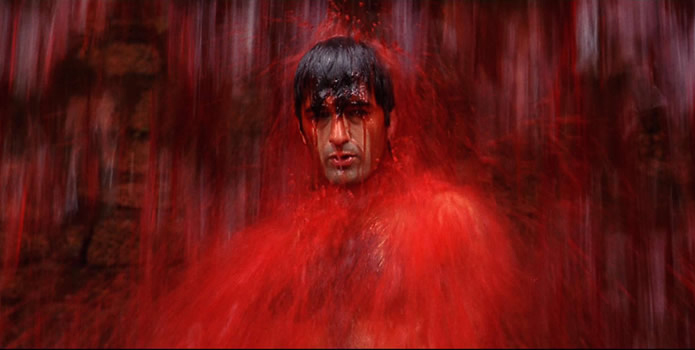In this series Team Experience sounds off (individually) on their favorite fringe awards contenders. Here's Amir Soltani on Neighboring Sounds.

Since the Academy wisely overhauled its nominating process for the foreign language film award and Dogtooth nabbed that delightfully shocking nomination, pundits tend not to take any film's chances too lightly in this category. Still, a nod for Brazil's intense and quietly powerful submission would come as a major surprise. That's partly because the film ran the festival circuit last year and its buzz has been more of a hum for a few months now so it's hard to imagine the executive committee coming to its rescue. It's a real shame because Neighboring Sounds isn't just the best of the submitted films; it is quite possibly the year's best film, period.
Sounds opens with a series of black and white still photos attuned to a rousing score that provide more social context for the story in 57 seconds than most films do in 90 minutes. Kleber Mendoca Filho - on his first try at helm - paints an increasingly unsettling portrait of an affluent neighborhood in the Brazilian city of Recife that wants to remain oblivious to the poverty and corruption that engulfs it. The greatest accomplishment of the film, and its rich but anti-climactic finale, is that it creates a sense of inescapable unease in the audience, not entirely unlike what the neighborhood residents deal with routinely.
Neighboring Sounds subverts our expectations at every turn, playing games with the laguange of cinema - both in the construction of its images and, as the title suggests, sounds - to shape our understanding of characters and the film's geopolitical space. It is the rare film that builds energy through completely inconspicuous means. It is not the guns and criminals that escalate violence; it's a meditative dip in the waterfall or a casual conversation between neighbors on a rooftop. The underlying sense of discomfort is a result of the film's "guilty until proven innocent" approach toward all its characters. By the film's end, the mistrust between the neighborhood's residents has slowly creeped in on us and become impossible to shake off. This is a masterclass in crafting a suspenseful piece, given by a man whose assured control of his film betrays no sign of his inexperience. Here's hoping Academy voters take notice.